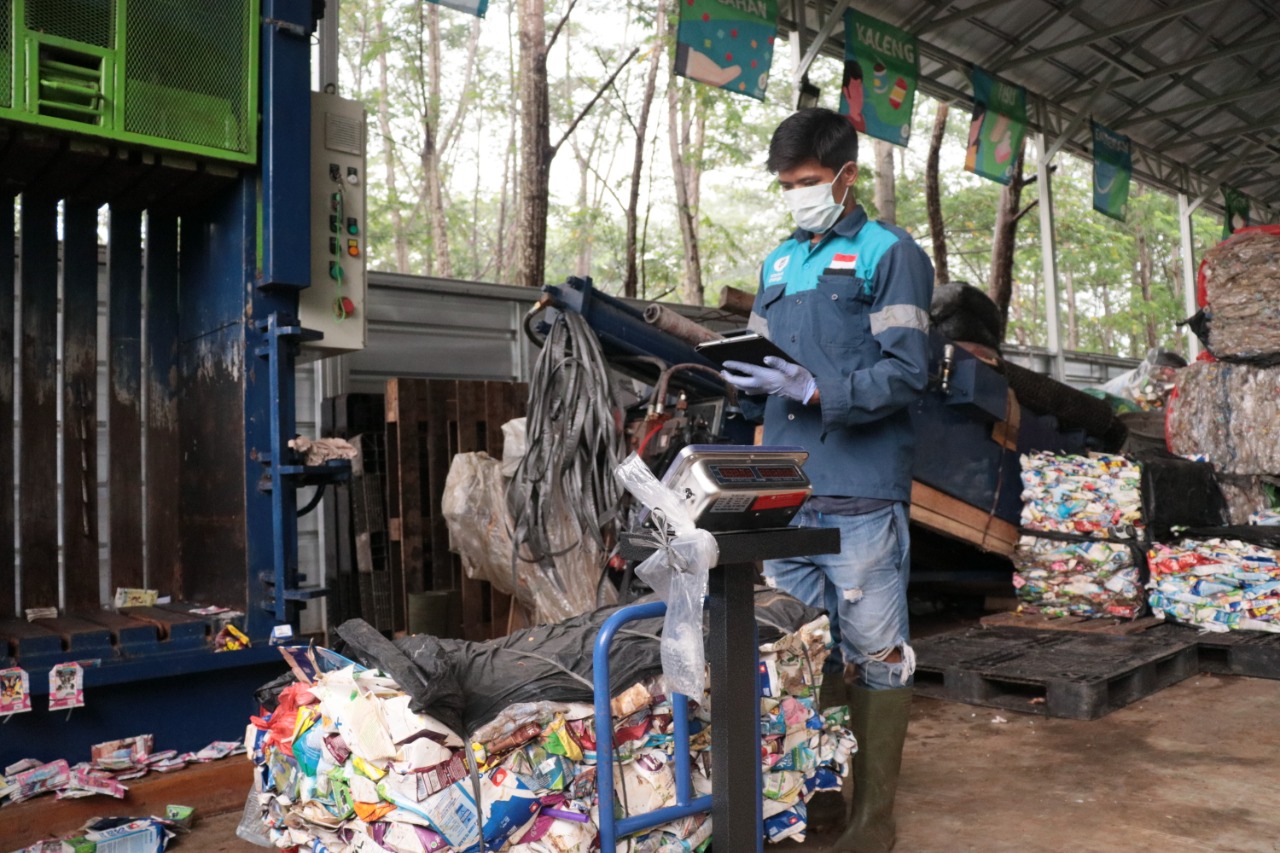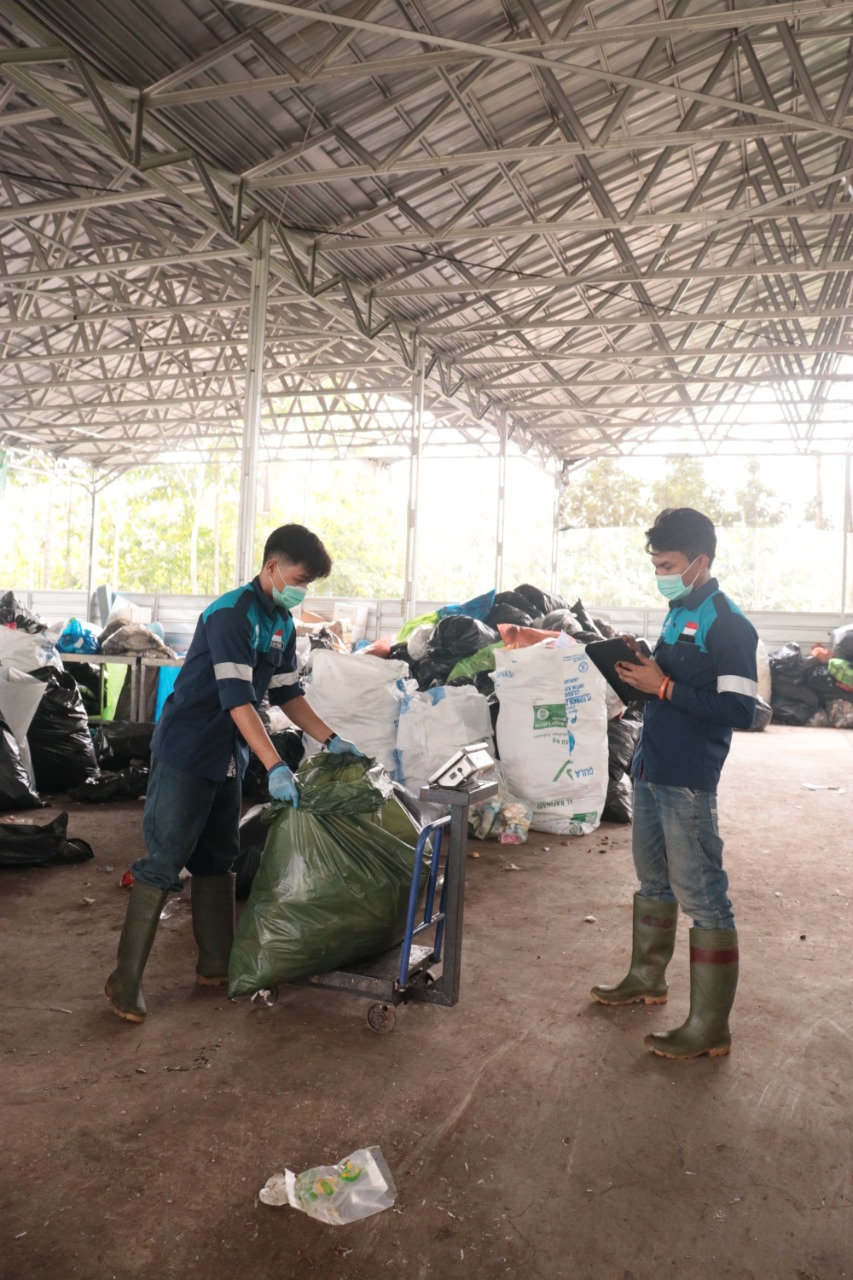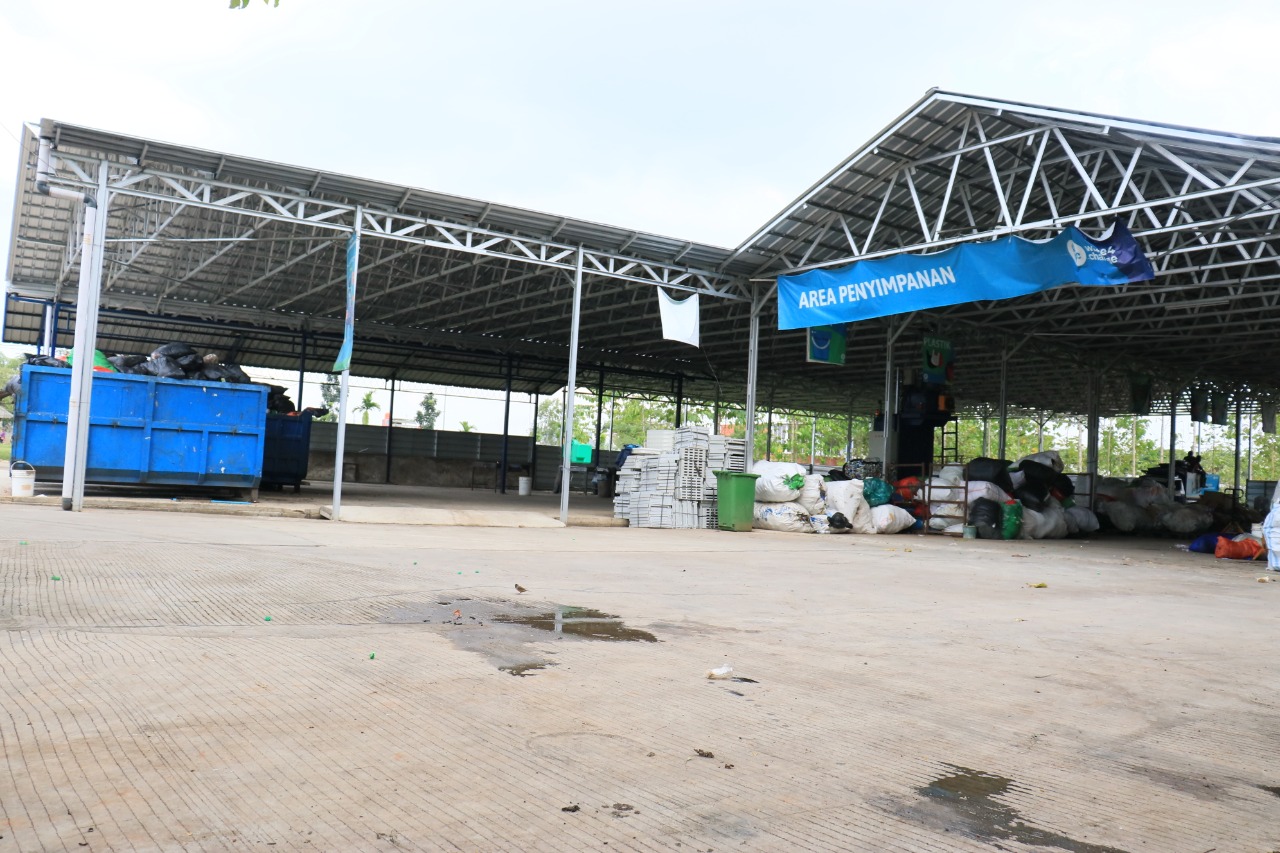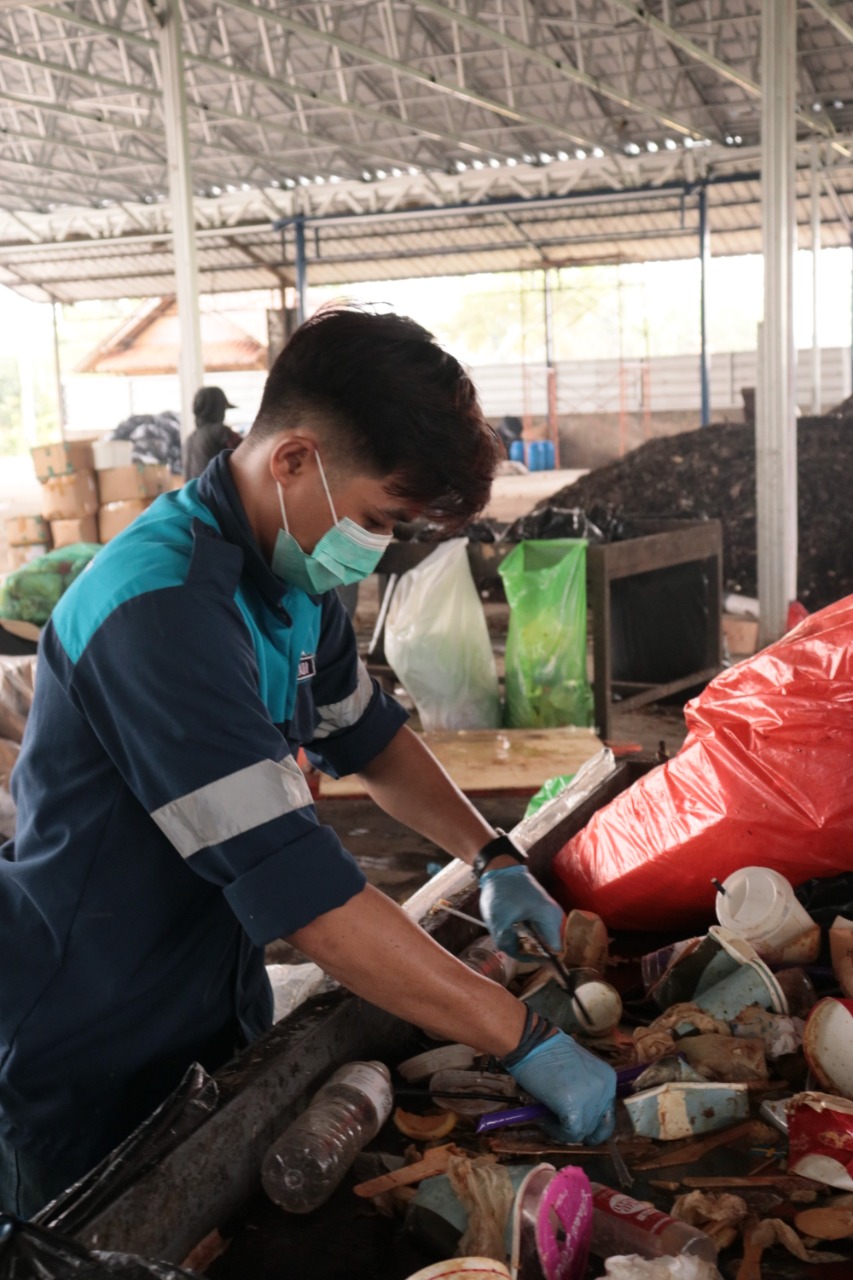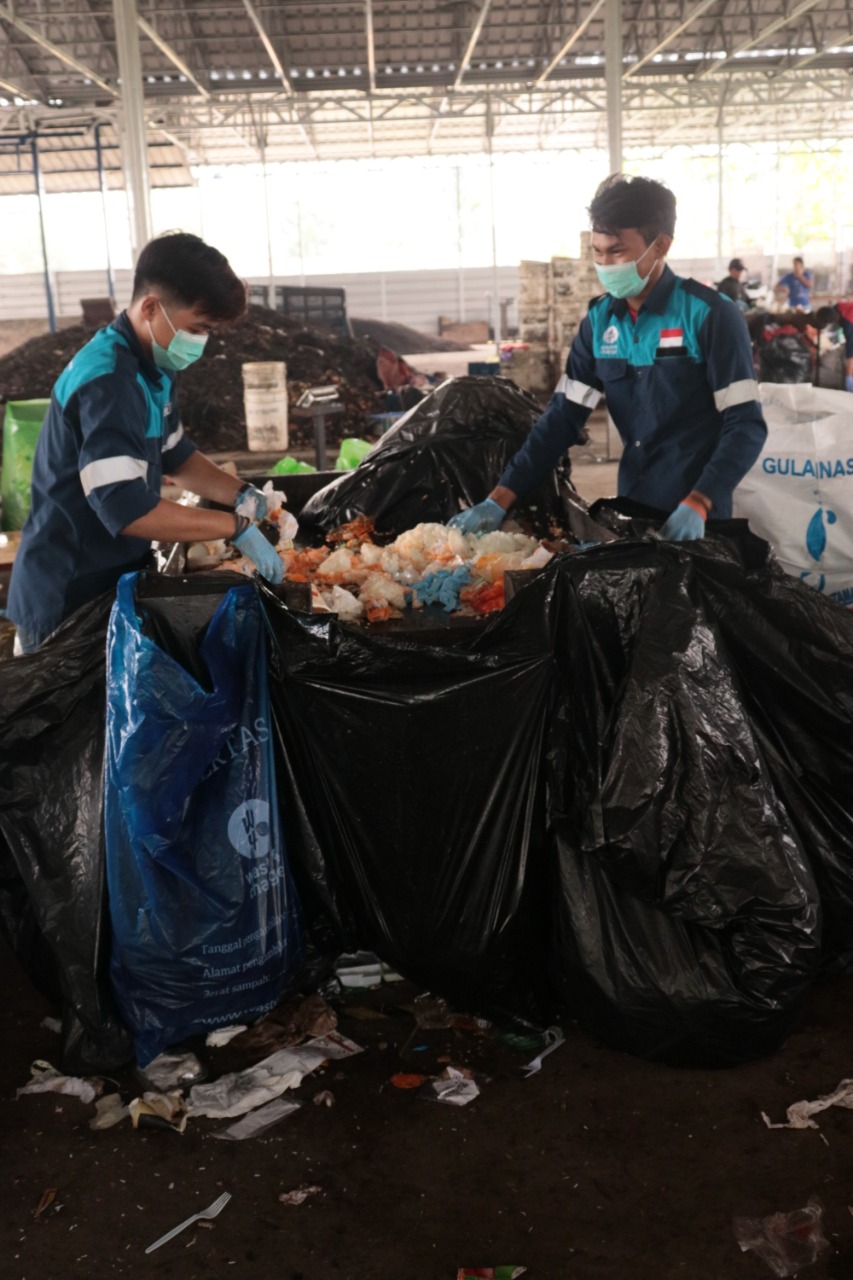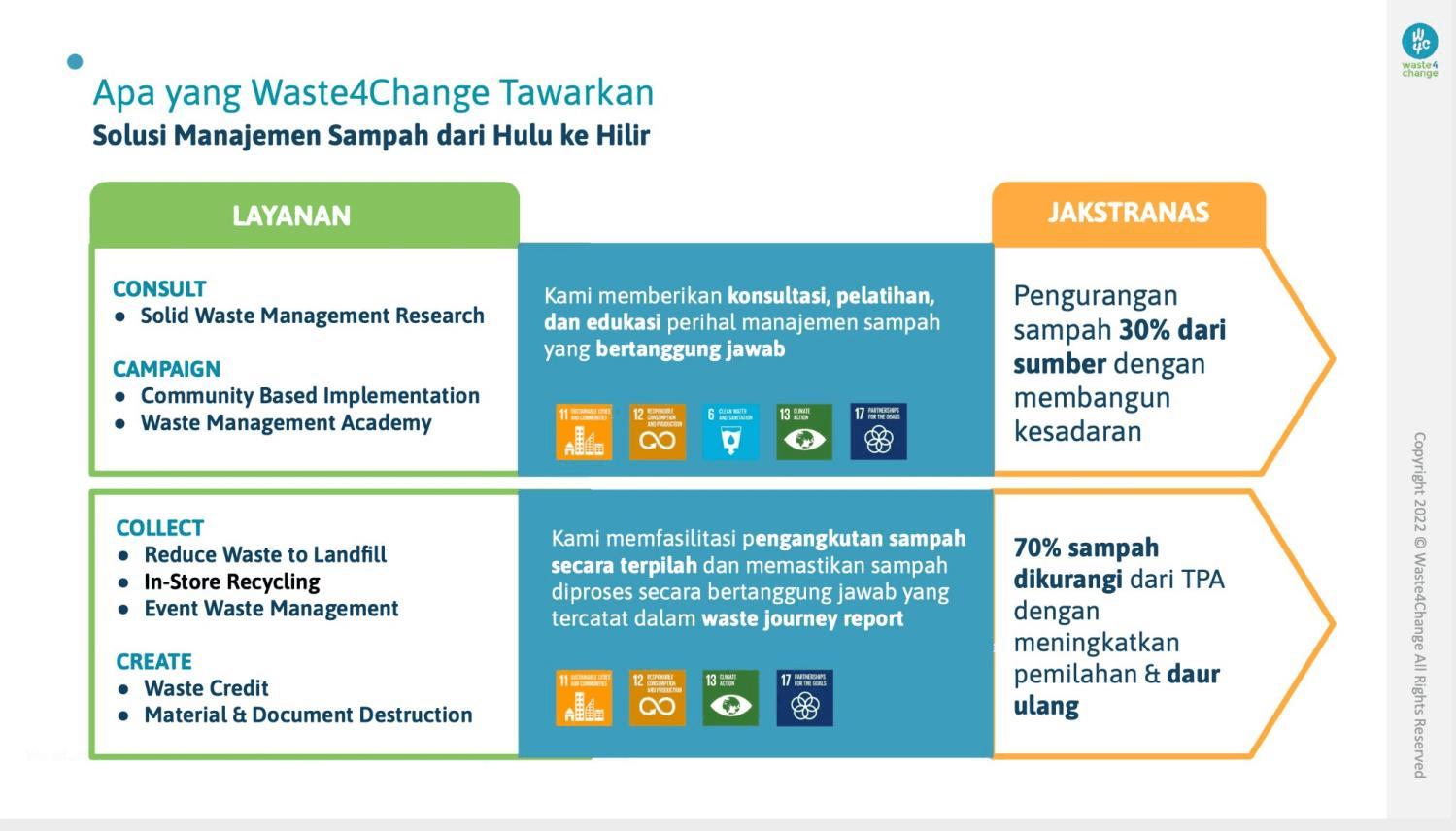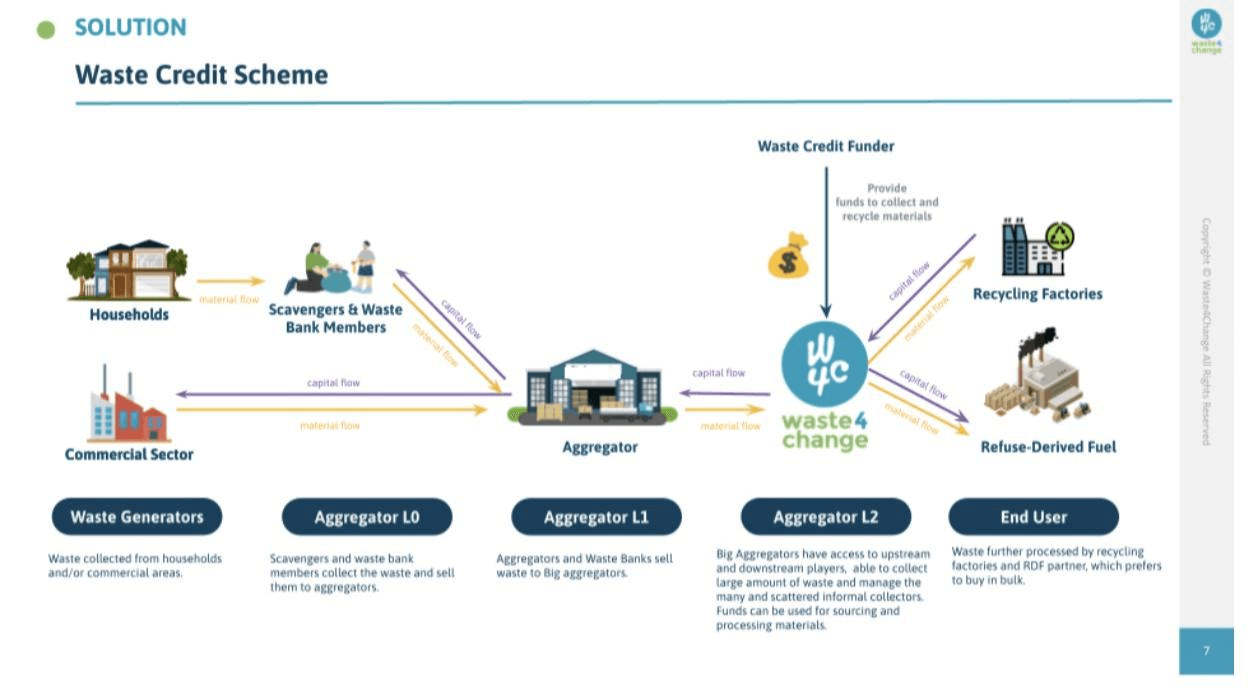Waste4Change's Long Way to Fight Disposable Waste
Waste4Change was founded in 2014, has secured early-stage funding from Agaeti Ventures, East Ventures, and SMDV
As one of the most densely populated countries in the world, Indonesia is in a waste emergency position. The country is still battling plastic pollution and marine debris due to improper waste management systems. According to the Ministry of Environment and Forestry (KLHK), Indonesia is only able to manage 14,58% of its waste, while most of the waste produced is not collected or disposed of in TPA (Final Disposal Sites) in 2019.
The World Bank (2021) states that Indonesia produces around 7,8 million tons of plastic waste every year and most of the waste produced is mismanaged. Alias still relies on the management of waste collection, transportation, disposal, which ultimately burdens the condition of the landfill, even though there are many materials that should be reprocessed.
For example, 70% of waste in urban areas is directly dumped into landfill, which results in overcapacity. TPA/TPST Bantar Gebang, Bekasi, for example, which covers an area of 110,3 hectares with a pile height of up to 30 meters, can only accommodate the entry of 7.000-7.500 tons of waste from DKI Jakarta residents for a maximum of three years. Other landfills also suffer the same fate, such as the Suwung landfill in Bali and the Piyugan landfill in Yogyakarta.
The small amount of recycled waste and the high amount of waste piling up in landfills cause many social and environmental problems. Against the background of this complex problem, it encouraged Mohammad Bijaksana Junerosano to establish Waste4Change in 2014.
"By adopting environmentally sound and responsible waste management, Waste4Change seeks to increase recycling rates by establishing standardization in waste collection and recycling procedures, as well as improving operator welfare and safety," he said when contacted DailySocial.id.
Sano, his nickname, is a person who cares about waste management in Indonesia. According to him, the problem of waste management in this country is a complex problem that needs to be handled with a holistic approach, not just the technical aspects alone. Not only does the recycling and waste collection system need to be improved, but changing people's behavior and mindset about waste is also very important.
“Inadequate waste management facilities also cause safety problems and poor welfare of scavengers. Therefore, strong commitment and cooperation is needed to overcome these problems."
Many people still manage their waste without thinking twice. They collect their waste and then move it to the nearest landfill or landfill. There is minimal or almost no waste sorting, or recycling efforts. This old waste management paradigm has had negative impacts on society, the environment and the economy.
To overcome the problem of waste management in Indonesia, many stakeholders from the government, business world and society have introduced it Circular Economy and the 3R concept (Reduce, Reuse, Recycle). By implementing responsible waste management, it is hoped that the Indonesian people can change their waste management behavior and mindset.
On the other hand, the informal sector has an important role in supporting responsible waste management in Indonesia. However, they tend to be very selective in collecting waste from the environment. They usually only collect the most valuable recyclable materials such as PET Bottles, Cardboard and Glass. Meanwhile, other less profitable materials such as PP plastic, multilayer packaging and styrofoam are still a challenge to recycle and pollute the environment.
Supported by technology and community partnerships, Waste4Change focuses on offering holistic, responsible waste management solutions for domestic households and companies. In accelerating the implementation of waste management, his party involves the informal sector in many ways, such as waste trading platforms.
"As of 2021, Waste4Change has collected 9.237 tons of waste and reduced 53% of waste thrown into landfills."
Business model and process of introducing technology
In essence, technology is useful for increasing efficiency, but not everyone can quickly adapt to technology. Sano is well aware of this condition, especially since this is applied to waste management. Therefore, his party tends to integrate technology gradually, especially for the informal sector and waste operators.
For example, technology integration also depends on location conditions and the type of waste being handled. For example, one of the Waste4Change projects, BRIC (Bekasi River Cleanup Project) in November 2021, aims to reduce the amount of waste in the Bekasi River by using See Hamster, a product made in Germany, namely PreZero/Schwarz Group and One Earth One Ocean (OEOO) .
The three See Hamster boats have different mechanisms. The first boat has a ramp that functions to pull rubbish from water bodies and river boundaries. The second boat is equipped with a basket that can go up and down and functions to hold and collect rubbish while the boat is running. The last boat has conveyor belts which can automatically pull waste from water bodies.
The three work in synergy and complement each other. This boat is powered by solar panels, making it an environmentally friendly system and free of carbon emissions. See Hamster has a collection capacity of 50-300 kg of rubbish per day and can reduce the amount of rubbish piled up in rivers. Waste management facilities are equipped with temporary waste sorting and storage areas, as well as charging station to charge.
“In the early stages of implementing BRIC, we found that some adjustments were needed with the See Hamster technology due to the unique type of waste and current conditions in the Bekasi River. Involvement is the main key to successful technology implementation.”
From the downstream side, for waste collection, the company provides a site called Send Your Waste to make it easier for individuals to recycle inorganic waste responsibly. All cleaned waste is sent via courier to the point drop nearest location. The company collaborates with a number of partners, whose locations are now spread across Jakarta, Bogor, Bekasi, Semarang and Sidoarjo.
Apart from that, the company is also intensifying cooperation with the private sector and government to create a bigger domino effect for more responsible waste management.
Sano continued, Waste4Change introduced the 4C concept which represents Consult, Campaign, Collection and Create, in offering waste management solutions in an integrated manner. end-to-end. 4C is Waste4Change's commitment to providing sustainable waste management solutions to our clients. This commitment is in line with the company's vision.
Consult, for research and studies related to waste; Campaign, in the form of capacity building, education and mentoring; Collect, transport and process waste every day for zero waste to landfill; Create, waste recycling and EPR (Extended Producer Responsibility) program.
For this third service, Waste4Change manages waste management for buildings, companies and business people. The solution is called Reduce Waste to Landfill with a subscription model. Users reach 70 institutions, namely the Food Artists School, Wisma Barito, Institute Francais Indonesia, Binus School Bekasi, Javara, Mang Kabayan, and Vide Bekasi.
The solution can be spread across 17 cities, namely Jabodetabek, Bandung, Solo, Medan, Palembang, Makassar, Manado, and Denpasar. A total of more than 7,4 million kg of waste has been recycled.
“All Waste4Change services are designed with a circular economy approach and target businesses and households to adopt responsible waste management in their daily operations. We partner with the informal sector, waste suppliers, government and the private sector and make the vision a reality zero waste in Indonesia."
The company has already pocketed it early stage funding from Agaeti Ventures, East Ventures, and SMDV in March 2022. Funds are allocated to increase the waste management capacity at the Waste4Change Material Recovery Facility towards a capacity of 2 thousand tons per day in 2024 and develop municipal waste management solutions using IT technology in the form of platforms smart city.
According to sources DailySocial.id, the company again received new investment of $570 thousand from ecoBali Recycling, AC Ventures, SMDV, Paloma Capital, Urban Gateway Fund, and others. This brings the total raised for the latest round so far to $1,4 million. When confirmed further, Sano was not willing to reveal further.
Lots of players
More Coverage:
Sano is also happy that more and more players like him are starting to pay attention to waste management in Indonesia. Apart from Waste4Change, there are Recosystem, Octopus, OCTOPUS, Kertabumi Recycling Center, Xaviera, Garbage Mall, Universal Eco, and many more. “We hope to see more companies and initiatives working together to solve the complex problem of waste management in Indonesia.”
The reason is, according to him, all stakeholders have the same responsibility in implementing the right solution to the waste problem in Indonesia. To contribute actively, producers and companies can implement Extended Producer Responsibility by collecting back their waste, especially PP packaging, multilayer packaging and styrofoam, which are categorized as low-value recycled materials.
In addition, partnership with the community is one of the main business strategies because the company understands that the community and the informal sector play an important role in waste management in Indonesia. “In the future, we want to have stronger partnerships and more initiatives to help communities have better access to more responsible and sustainable waste management facilities.”
Waste4Change will continue its vision as the largest waste management company in Indonesia that collects waste in the most responsible way. In the next year, the plan is to expand partnerships with the informal sector and increase daily waste collection at all Waste4Change recycling facilities.
“We have achieved tremendous growth every year. However, currently, we are working to improve informal waste management actors. Some of our projects with our clients focus on this issue. We believe that by increasing the amount of waste recycled, we can help build a sustainable waste management system in Indonesia.”
Another project currently underway is to support awareness and realization of the Indonesian government's waste management program. Sano ensures that all his services always comply with government regulations, including Indonesia Clean Waste 2025 and Minister of Environment and Forestry Regulation No. 75/2019 which requires producers to provide a waste reduction roadmap.
“We are excited to see a more mature market in 2022. People are starting to care more about their waste and our holistic approach is still in demand these days. "Welcoming our 8th anniversary in November 2022, we aim to be a better provider, partner and advisor of waste management services for all stakeholders," he concluded.
Sign up for our
newsletter
 Premium
Premium
